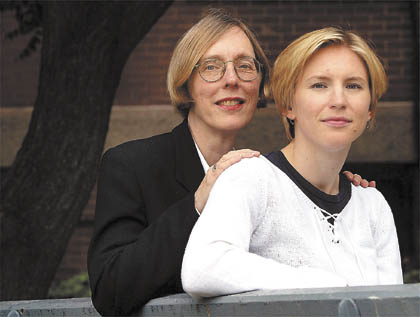
| By Admin1 (admin) (pool-151-196-165-54.balt.east.verizon.net - 151.196.165.54) on Friday, October 31, 2003 - 2:14 pm: Edit Post |
Parents push for Improvements is ignored by Peace Corps

Another thing Dr. Gerring did was write an article for "Peace Corps Online" focusing on Volunteer Mental Health, Volunteer Security, and Premature Volunteer Attrition and offering solutions to these problems based on her years of clinical work as a psychiatrist. Read the story, then read our original report at the bottom of the page at:
Quote:When (Doctor) Joan Gerring visited her daughter, Judy, in Kazakhstan in October 1999, she became worried. The young woman who had graduated magna cum laude from Yale University five months before was depressed and spending much of her free time sleeping. Judy had hoped to use her experience in the central Asian country to jump-start a career in economic development. But instead of working with small businesses, where she might expand on her fluent Russian speaking skills, she ended up primarily teaching English. She also feared for her safety. The industrial town where she lived, Ekibastuz, had once been home to a Soviet gulag. The stairwells in her apartment were not lighted, drunks would knock on her door at night, and her supervisors were a 33-hour train ride away.
After returning from Kazakhstan, Joan teamed with another mother, Maureen Chemsak, to push for better safety and mental health support for volunteers. Chemsak, a volunteer in Micronesia from 1969 to 1971, was concerned about the safety of her son, Stephen, who was kicked out of his house in Kazakhstan right before Christmas in 1999, then had to search for his own housing despite knowing very little Russian.
After visiting Peace Corps headquarters in Washington, D.C., Chemsak became frustrated. "We got a lot of nods and a lot of pats on the back and ‘Everything will be OK,’ and that was it," she said. In February 2000, Gerring and Chemsak both voiced their safety concerns in a meeting with agency officials. "All those administrators that I encountered would just say, ‘That’s what Peace Corps is about,’ ” Gerring said. Added Chemsak: "I got the feeling I was being treated like a worrisome mother."







| By Anonymous (181-70-174-206.gci.net - 206.174.70.181) on Saturday, March 29, 2008 - 9:31 pm: Edit Post |
Boy did I have an experience with PCMO. I had a once-in-a-lifetime panic attack in Africa, was sent home and under the guise of "getting counseling" in Washington, DC and under a contract psychologist was diagnosed with a "panic disorder Type III" which "may last years or months or may become permanent!" They kicked me out. That was in 1983 and I have never had another panic attack since. The whole process was cruel and humiliating. The PCMO in Washington, DC was horrible, not supportive, and damaging. This has been a great blemish on my life.